The 2024 American Flat Track season was one for the history books, with Jared Mees notching up his 10th championship to surpass Scott Parker’s longstanding record of nine titles. But does that make Mees, who retired after this season, the best flat-track racer in the 70-year history of the sport?
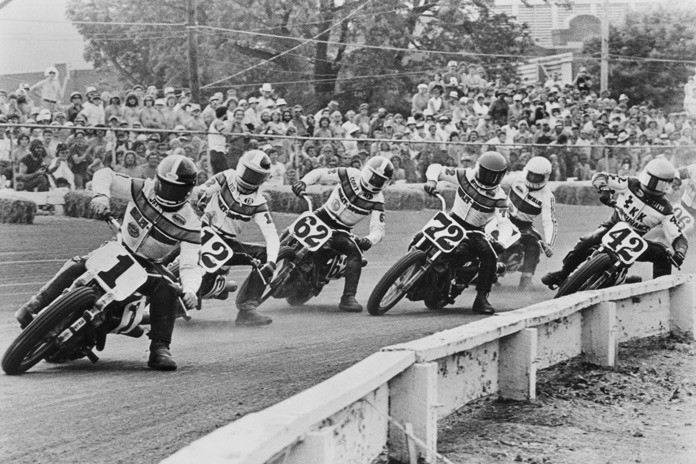
The challenge in determining which racer is truly best is that the sport has evolved so dramatically through its seven decades, making it impossible to compare riders head-to-head. Several flat-track racers from previous eras could also be considered the greatest of all time, but for a variety of reasons, they had shorter careers.
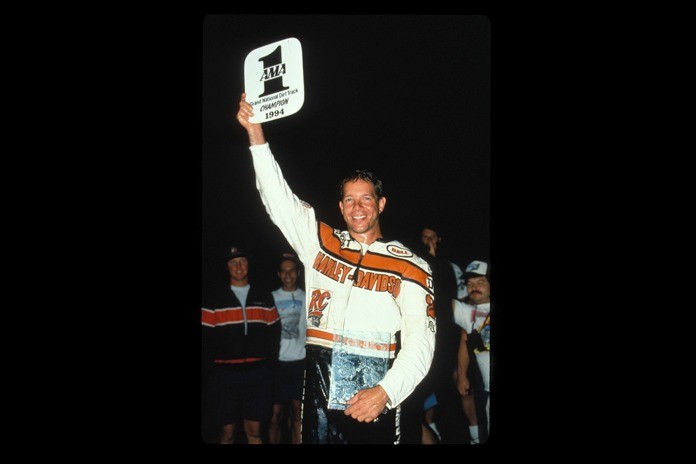
Flat-track racing was far more competitive in its earlier days. There were hundreds of AMA Pro races held all around the country and several hundred Pro racers trying to earn their Expert license needed to race the National circuit. It was typical to have 60-100 Expert racers competing at every National, fighting through one-lap time trials (on cold tires) for one of only 48 spots available in the heat races. Today, only 20 or so racers line up for the SuperTwins class.
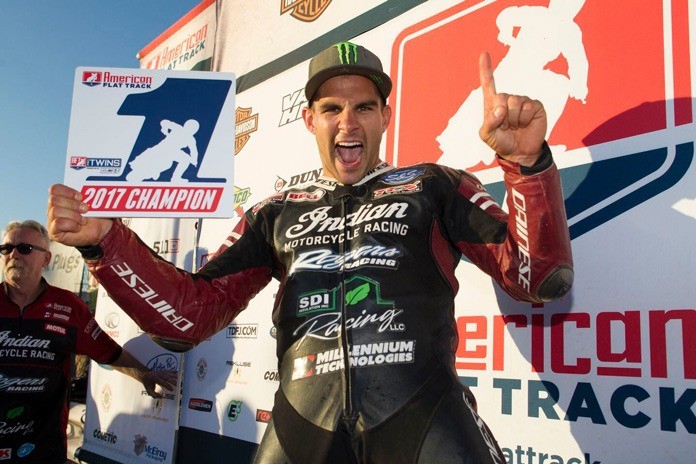
The sport also used to be far more brutal. In the early days, brakes of any kind weren’t allowed, and concerns about rider safety were almost non-existent. Immovable walls were occasionally cushioned by a smattering of haybales, and protective gear was sadly primitive. But today, riders benefit from air fences in front of walls and wear high-tech helmets and protective airbag suits.
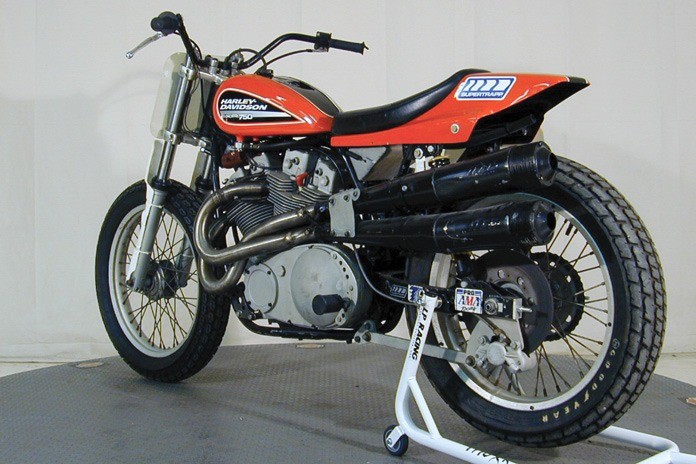
The motorcycles have also changed significantly over the years. Brakes weren’t allowed until 1969, with 750cc side-valve V-Twins (Harley-Davidson KR and Indian Scouts) competing against 500cc overhead-valve Singles and Twins (BSA Gold Star, Matchless G50, Norton Manx, Triumph T100). Up until 1967, production frames, forks, and wheels were required. From 1969-1975, all 750cc configurations were fair game, and most used aftermarket frames, suspension, and wheels. By 1980, Harley’s XR750 was the only viable option for a championship contender until Honda debuted its RS750 in 1983.
Related: 2024 Progressive AFT Finale: Mees Makes History
Although it’s impossible to absolutely state which flat-track racers were the best of all time, here’s a list of my 10 favorites along with reasons why they deserve a spot.
The Top 10 Flat-Track Racers
Joe Leonard (1953-1961)
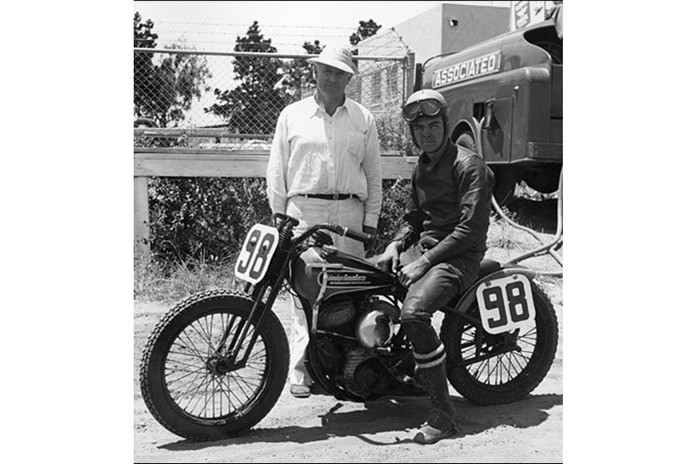
Leonard won a National in every available discipline in 1953, and in 1954 he became the first Grand National Champion. He went on to rack up a record 27 National wins and is generally acknowledged as the best racer of the 1950s. He claimed three titles (1954, 1956, 1957) before going car racing. He only raced one short-track National (and didn’t win) before he retired from full-time motorcycle racing in 1961, so he came up short of being recognized in the “Grand Slam” club (see Dick Mann below).
Carroll Resweber (1957-1962)
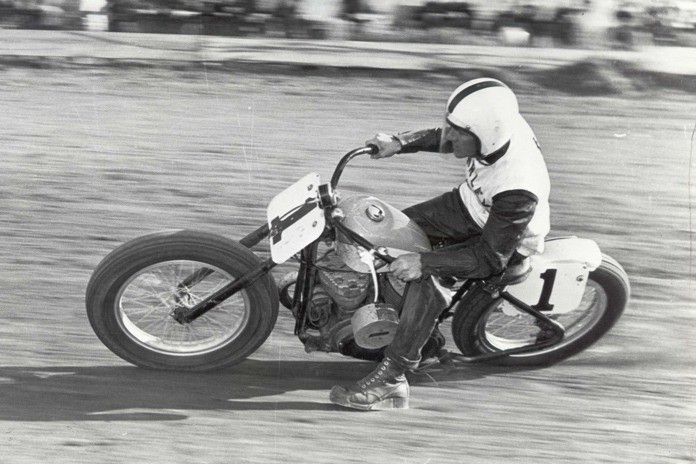
Resweber became the first four-time champion (1958-1961) in a short six-year career, and he is generally acknowledged as the most spectacular racer of the brake-less era. Over an astounding 19-day period in August 1961, he won short-track, half-mile, mile, and roadrace Nationals. Resweber was leading the 1962 points chase late in the season when his career ended in a horrifying crash in Lincoln, Illinois.
Dick Mann (1955-1974)
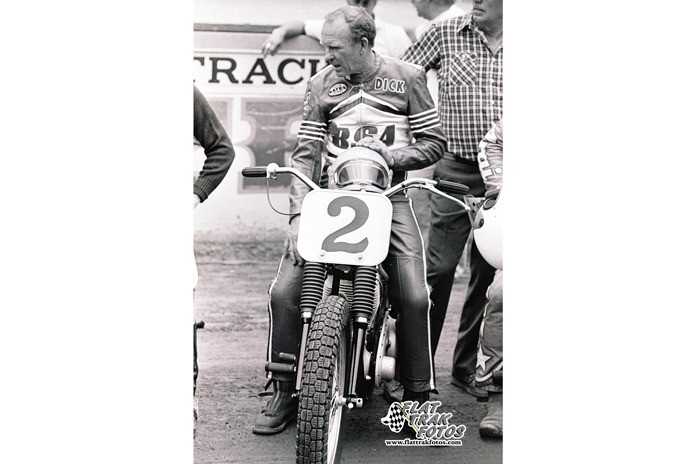
It could be argued that “Bugsy” Mann was the most complete all-around racer ever. He was the first to nab a Grand Slam – winning a National in all five disciplines (short track, TT, half mile, mile, and roadrace). He was also the only champion to win during the brake-less era as well as, after 1968, with brakes. He earned championships in 1963 and 1971 and retired from flat-track in 1975, the same year he won a bronze medal at the International Six Days Trial when he was 41.
Kenny Roberts (1972-1977)
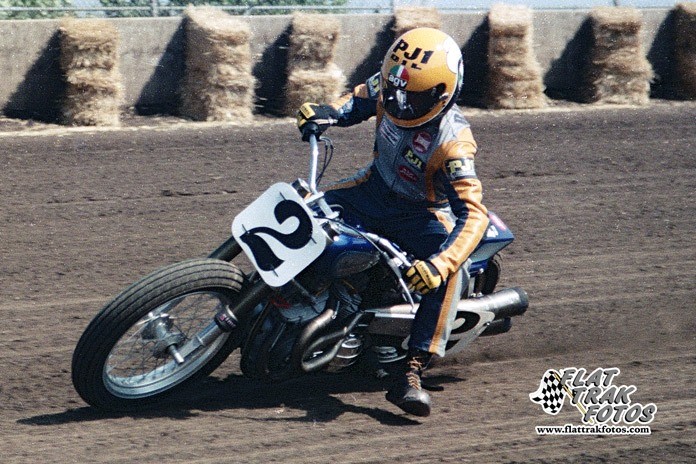
The man who became known as King Kenny scored 33 wins and won Grand National titles in 1973 and 1974. He was the second racer to earn a Grand Slam (in 1974), following up the next year with a second one. Roberts transitioned away from dirt-track in 1978 by heading to Europe, revolutionizing roadracing with his knee-down cornering technique and winning three consecutive 500cc world championships (1978-1980).
Jay Springsteen (1975-2007)
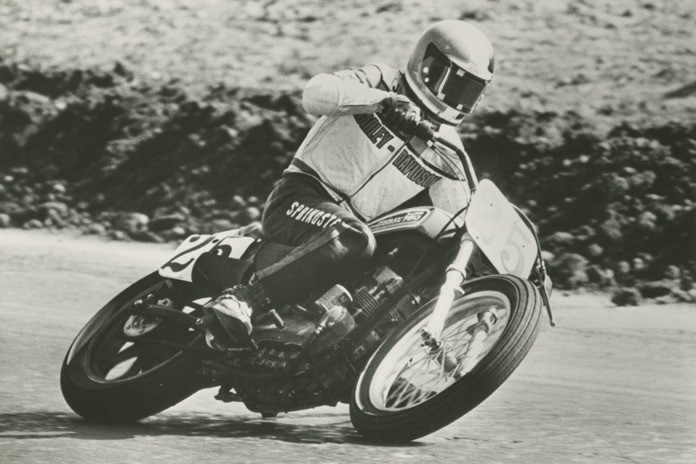
The gunslinger from Flint, Michigan, was the epitome of flat-track in the 1970s and a crowd favorite since his rookie year. Springsteen perhaps rode harder and faster than anyone and claimed three straight championships (1976-1978). Springer raced into his 40s, winning his 43rd and final event at the age of 43, becoming the oldest rider to ever win a Grand National.
Ricky Graham (1978-1997)
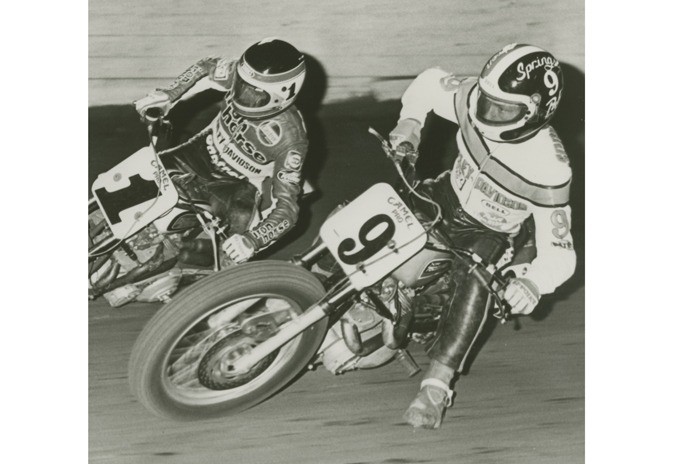
Graham was arguably the most naturally gifted flat-track racer ever. His speed and effortless riding style earned 39 victories and championships in 1982, 1984, and 1993. His career was derailed several times by injuries and bouts with alcoholism, but he rebounded from several dismal seasons to record a magical comeback in 1993, earning 12 wins (including a record six in a row) en route to a third title. A 5th-place finish at the Del Mar Mile in 1997 proved to be his final race, as he tragically died in a house fire early in the following year.
Bubba Shobert (1980-1988)
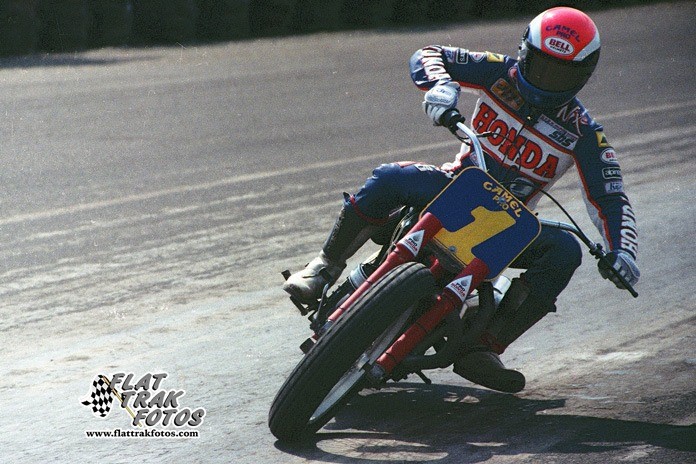
Shobert was one of the most focused racers ever to strap on a steel shoe. After missing the 1984 title by a single point, Bubba ran away with the next three championships (1985-1987), claiming 34 wins in only seven years and becoming the third member of the Grand Slam club. After earning the 1988 AMA Superbike championship, he transitioned to world championship roadracing in the prestigious 500cc Grand Prix class, but his career was cut short in 1989 due to injuries suffered in a flukey post-race collision with another rider.
Scott Parker (1979-2000)
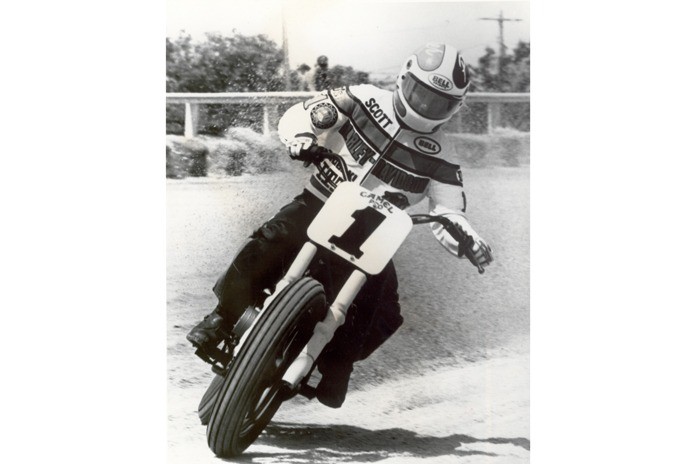
Parker burst into the flat-track scene in 1979, becoming the youngest Grand National winner in history as a 17-year-old rookie. His career achievements are extraordinary, netting 94 victories and nine championships (1988-1991, 1994-1998).
Chris Carr (1985-2011)
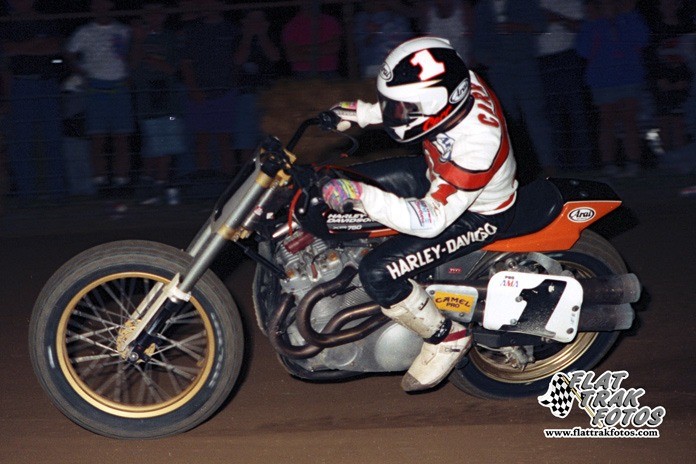
Carr earned seven championships (1992, 1999, 2001-2005) and 78 wins, and he was the most dominant 600cc single-cylinder flat-tracker in history. He scored his first win in 1986 at the Peoria TT, a track on which he shined and earned the moniker “Prince of Peoria.” Versatile in all forms of racing, in 1995 he began racing H-D’s VR1000 in AMA Superbike while also racing dirt-track, then skipped two years of flat-tracking in his heyday to continue riding Harley’s ill-fated roadracing project.
Jared Mees (2003-2024)
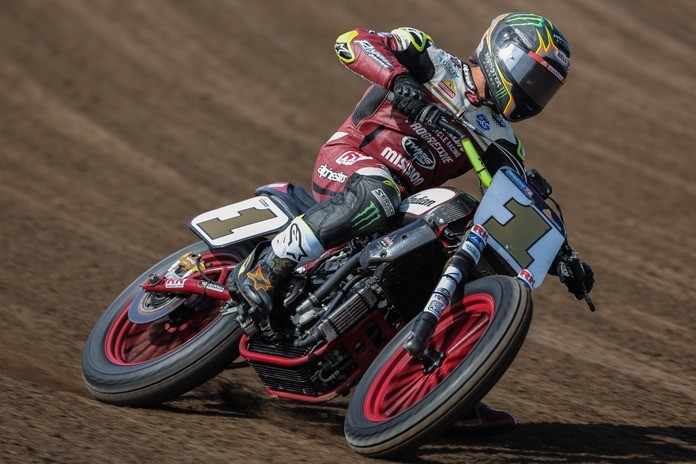
“The Jammer” is a 10-time champion with 78 wins, plus two Grand National Twins titles and a Grand National Singles title on his resume. He certainly deserves a spot at or near the top of any best flat-tracker list.
Mees vs. Parker
With more championships than any other riders, Parker and Mees stand apart from the rest. But there is a caveat to Mees’ 10 titles.
The AMA split the series from 2006-2009 so H-D could have its uncontested Twins championship while other OEMs could battle for the GNC Singles category. In 2009, Mees won the Twins title and Henry Wiles won the Singles title. But it was Sammy Halbert who actually scored the most combined points in all disciplines, which was the definition of the Grand National Champion from 1954-2005 and 2010-2024. So Mees didn’t earn the most combined points in 2009. This may be splitting hairs, but Mees actually scored the most combined points nine times, not 10.
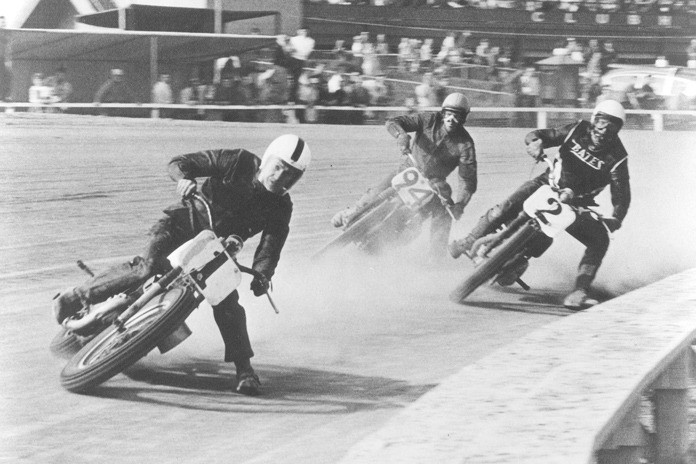
In Parker’s first year, he raced against three past champions (Gene Romero, Gary Scott, and Jay Springsteen), and four future champions (Steve Eklund, Randy Goss, Mike Kidd, and Ricky Graham). Parker had won 15 Nationals by the end of 1987, and he claimed another 15 wins and the championships in 1988-1989. Over the next six seasons (1990-1995), he added another 40 wins plus four championships. Parker scored the most total Grand National points nine times: 1988-1991 and 1994-1998.
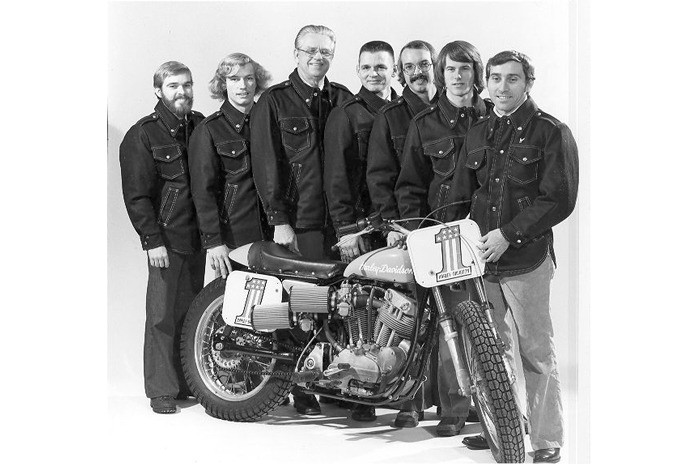
Parker famously rode Harley-Davidson XR750s, and his rise to dominance is partially linked to 1988’s new rule requiring extra weight on Honda’s speedy RS750 and Bubba Shobert’s growing interest in roadracing for the Honda team. Shobert won the 1988 AMA Superbike roadracing title before going on to race the FIM 500cc Grand Prix circuit.
In Mees’ first year on the Grand National circuit, he raced against three past champions (Jay Springsteen, Chris Carr, and Joe Kopp), and four future champions (Carr, Kenny Coolbeth, Jake Johnson, and Bryan Smith). Mees had 20 National wins on his resume at the end of 2016 before transitioning to race Indian’s FTR750.
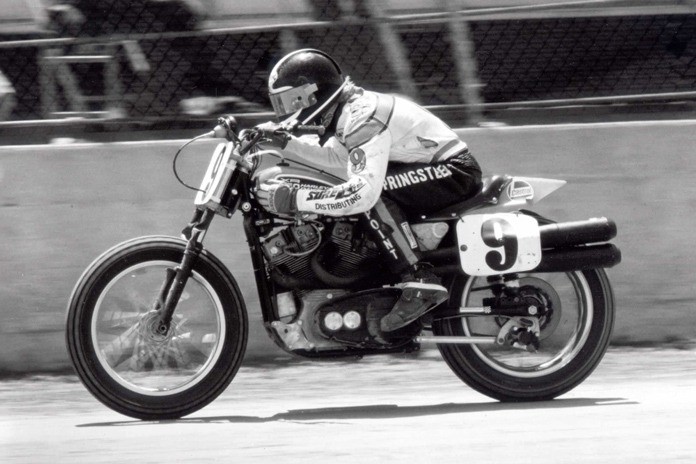
Mees’ ascension as the undisputed king of the rebranded American Flat Track is directly linked to the introduction of Indian’s FTR750, which he helped develop in 2016. When Mees lined up with the FTR750 at Daytona International Speedway in 2017, the best rider in the sport was on the best motorcycle in the sport. Mees scored another 20 wins and the 2017-2018 titles before being dethroned by teammate Briar Bauman in 2019-2020.
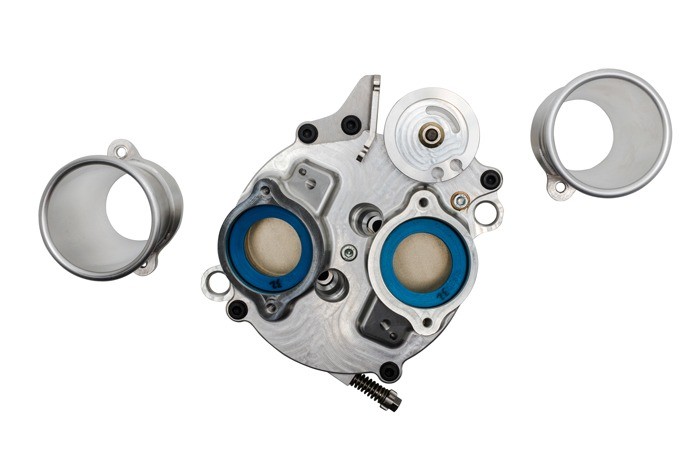
AFT recognized that an FTR stranglehold on podium spots was unhealthy for the sport and in 2021 allowed traction control on bikes with production engines, a tech option unavailable for the FTR’s race engines. Mid-season, the Indians received their first batch of restrictions: a weight penalty for the bikes was added and the rear wheels needed to be lighter (heavier rear wheels reduce wheelspin). Further restrictions (intake and wheels) for the FTR were handed out for the 2022 season. Despite all these technical challenges, Mees and acclaimed tuner Kenny Tolbert won championships from 2021-2024.
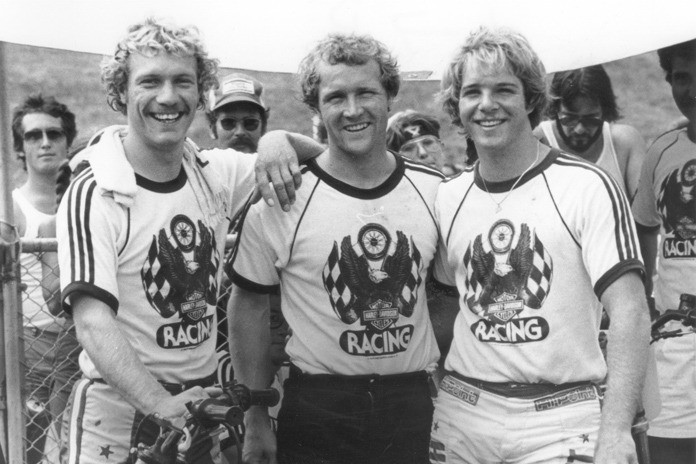
More Comparisons
- Mees won at least 50% of the Nationals in a season three times – 2017-2019, when he won 29 out of 54 events total. Parker exceeded the 50% win ratio only once, in 1989, when he won 10 out of 16 events.
- Mees podiumed at least 50% of the Nationals in a season 14 times. Parker did it 10 times.
- Mees won his 78 Nationals at 39 different racetracks: a 50% tracks-per-win ratio. Parker won 94 Nationals at 28 different tracks (29.8%).
- Parker won eight or more Nationals at four tracks: Springfield Mile (14), Sacramento Mile (13), Indy Mile (8), and San Jose Mile (8). Mees won eight or more Nationals at only one venue: the Springfield Mile (10).
- Parker raced 20 or more Nationals in a season 12 times, including 26 in 1983. Mees raced 20 or more Nationals only once, in 2011 when there were 20 races on the schedule.
- Parker’s best season, statistically, was 1997, when he scored eight wins and 15 podiums en route to his eighth title. Mees’ best statistical season was 2017, the year he claimed his fourth title, scoring 10 wins and 17 podiums out of 18 events on the calendar.
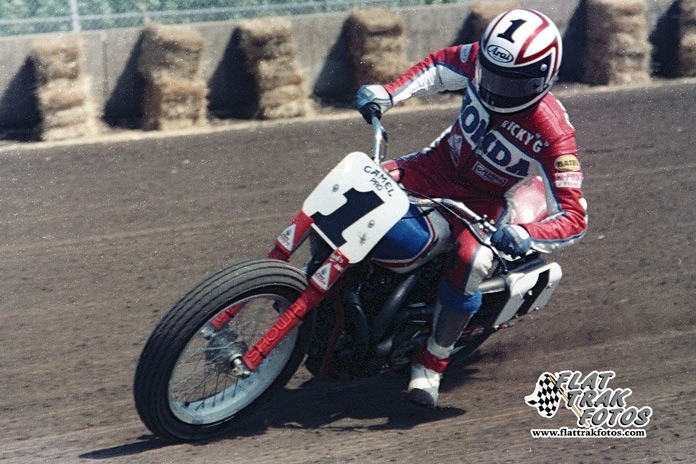
Interestingly, had Mees maintained his 22% win ratio over another 77 races (the extra events Parker raced), he would have finished with 95 total wins to Parker’s 94. Similarly, on Nationals, had Mees maintained his 30% win ratio for another 70 events, he would have finished with 53 mile wins to Parker’s 55.
Conclusion
Jared Mees is the most determined flat-track racer I have ever seen. Chris Carr once said, “Jared hates losing more than he likes winning,” and I consider that to be a very apt description of Mees. He approached the sport with intense seriousness, as something to be conquered – and conquer he did.
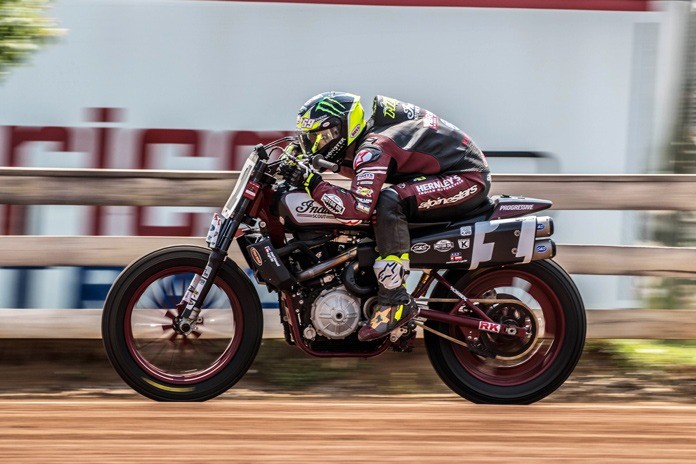
In contrast, Scott Parker was a product of the 1970s and simply loved racing motorcycles – winning races and championships was a bonus. His joyful celebrations from the top step of the podium were irresistible, particularly in his younger days when his mop top of champagne-soaked hair was at its fullest. The hair got shorter and the celebrations got a little tamer as the years passed, but you always knew that Parker was going to give everything he had on race day.
In a fitting similarity, both Mees and Parker won their final Grand National races. Unequivocally determining who is best is impossible, but both would be worthy recipients of the Greatest Of All Time title.
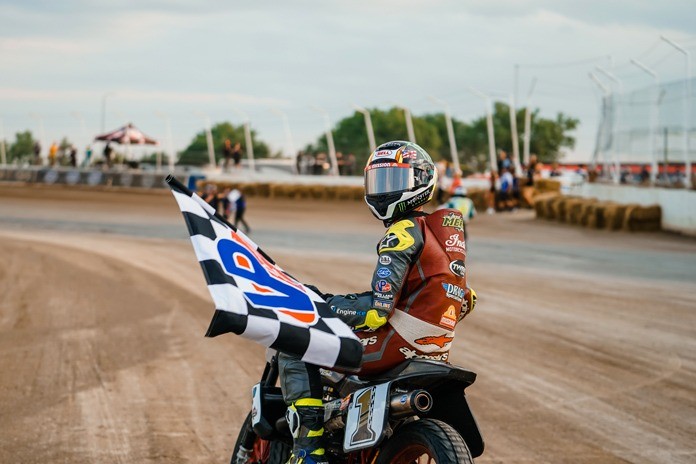
Bert Sumner is a flat-track historian, event promoter, and former Expert-ranked AMA flat-track racer. He chairs the AMA Commission for amateur flat-track competition rules and has devoted the past 22 years to cultivating the most complete flat-track history on the web at DairylandClassic.com.

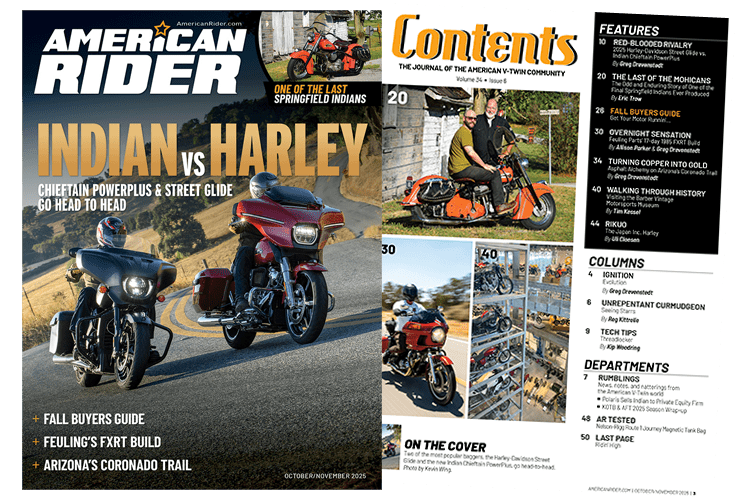
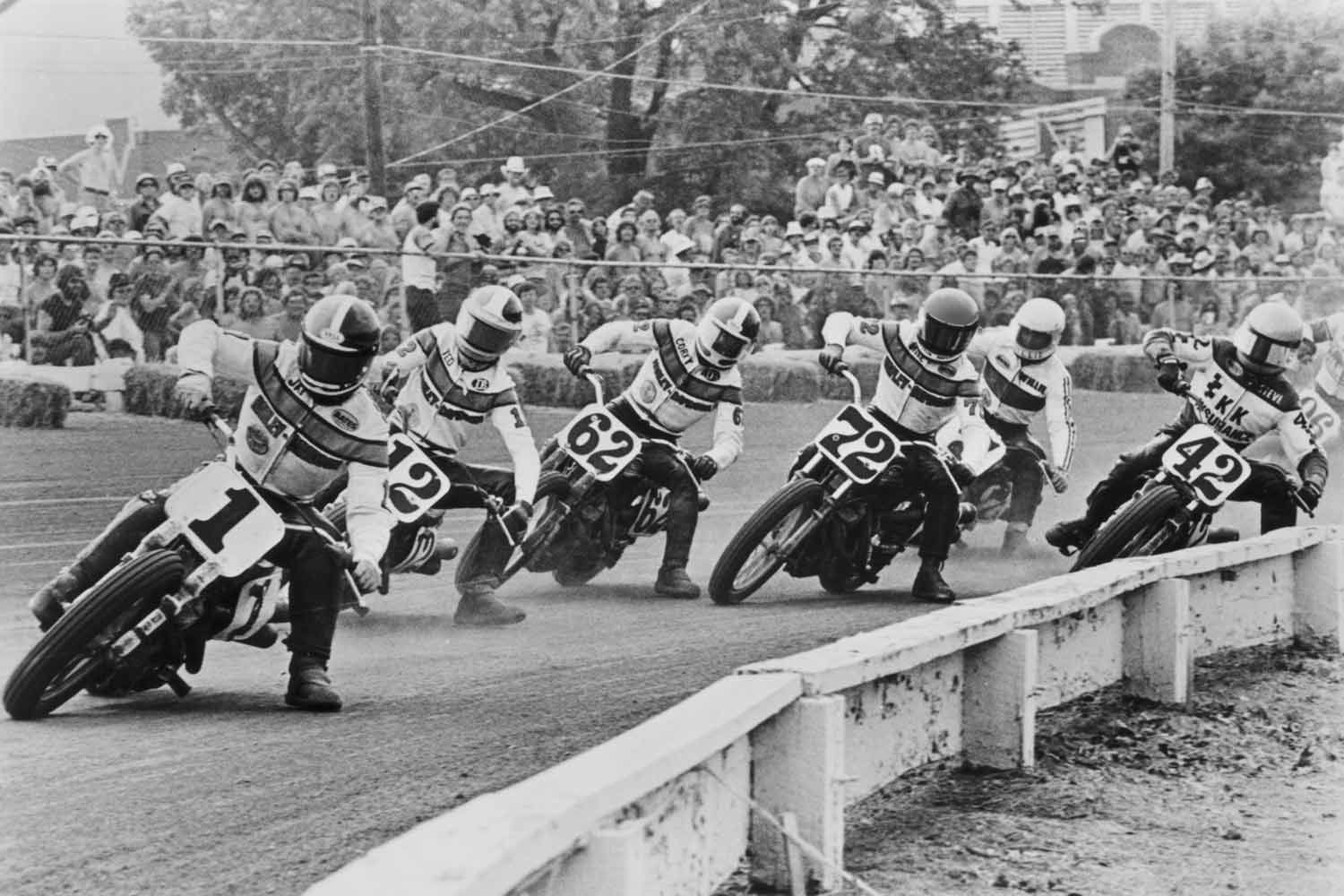
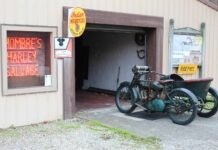
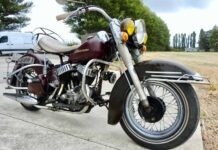


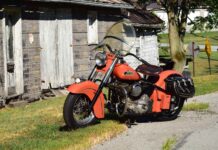
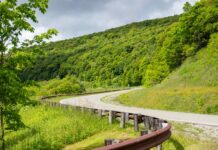










Everybody should watch. It’s a movie on Old flat track racers back in the day. I do believe the movie is called on any given Sunday. Has a bunch of old classics writers in it dicky knoll. David aldana. Malcolm Smith. I do believe Willard Schwartz is in that movie too he is the mechanic angry mechanic. Great old movie 🍿
I still believe the good old days of Flat Track racing has been tarnished, by Jared Mees. How dare anyone “cheat”, in Flat Track. From the day it started, Joe Learnard, to my favorites, Jay Springsteen, Scott Parker and Chris Carr. And my days of hanging out racing 🏁. A tire heated, is a tire cheated! 10 Grand National Championships. Give me a break! I wonder how Ricky Carmichael would say? The 🐐 GOAT! Hey Jared, how about some Motocross? No one ever heated Tires, in the good old days, unless it was hot from the Track. Lol.